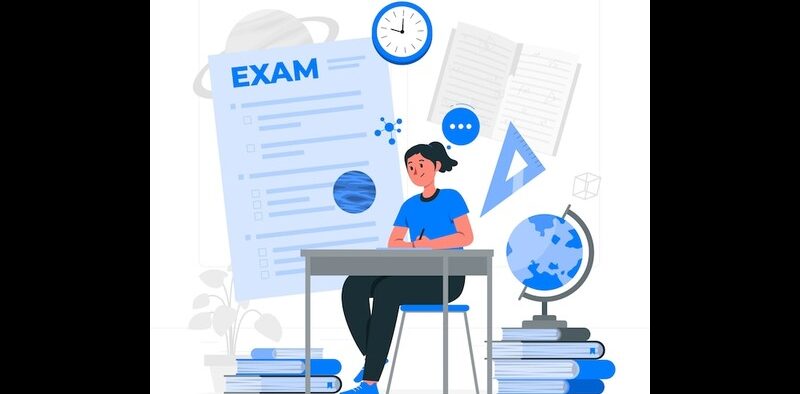WBCHSE Class XII 2025 Exam Dates And New Subjects
Share

The West Bengal Council of Higher Secondary Education (WBCHSE) announced the schedule for Class XII theory exams for 2025 from March 3 to March 18, 2025. The board has also launched five new subjects to open up academic options for the students. The step showcases the increased focus on contemporary education, technological progress, and industry-related skill development.
One of the major introductions for the year 2025-26 is Artificial Intelligence and Data Science (AIDS) that will supersede the erstwhile introduced topics ARTI and DTSC. The two courses, which were introduced during the 2023-24 session, are being withdrawn now. The new course on AI will be able to equip students with the required know-how and capabilities in newer technologies, keeping the education of students in tune with industry needs.
In addition to AI and Data Science, the board has also brought on board four more subjects: Environmental Science (EVSC), Fisheries and Aquaculture (FSAQ), Business Mathematics and Basic Statistics (BMBS), and Basic Mathematics for Social Sciences (BMSS). Each of these subjects is intended to further enhance students’ academic options and prepare them with knowledge pertinent in different fields of professionalism.
Subject Allocation and Combinations
The new subjects are grouped into various sets to enable students to choose courses that correspond to their career goals. Set 1 has Artificial Intelligence and Data Science (AIDS) and Environmental Science (EVSC), providing students with a mix of technological and environmental studies. Set 1 and Set 3 have Fisheries and Aquaculture (FSAQ), while Set 2 has Business Mathematics and Basic Statistics (BMBS). Basic Mathematics for Social Sciences (BMSS) is only offered in Set 3.
The categorization of these subjects into sets gives the students freedom in selecting subjects that are in line with their interests and career goals. While some subjects are based on technology development, others specialize in niche fields like aquaculture and environmental studies, widening career opportunities in such areas.
Teacher Qualification and Consent
In order to provide quality education and suitable assessment, WBCHSE has set clear norms for the qualification of teachers. As per the board, one qualified teacher is allowed to handle a maximum of three subjects out of the list given below: COMA, COMS, AIDS, CBST, and APAI. Schools teaching more than three subjects must employ a minimum of two qualified teachers.
Moreover, teachers instructing such subjects need to give written permission to assess Higher Secondary (HS) answer scripts for the same subjects. This is done in order to keep the process uniform and expert to ensure that the students are fairly and accurately assessed.
Language and Subject Combinations for WB HS 2025
For the 2025 Class XII examination, the board has grouped subjects into two language groups: First Language and Second Language. English-A, Bengali-A, Hindi-A, Nepali-A, Urdu, Santhali, Odia, Telugu, and Punjabi are the first language options, and English-B, Bengali-B, Hindi-B, Alternative English, and Nepali-B are the second language options.
In addition to languages, students will be offered a broad range of combination subjects depending on their selected set. Set 1 encompasses major subjects like Physics, Chemistry, Economics, Mathematics, Biological Science, Statistics, and Geography with other electives being Computer Science, Environmental Science, Cyber Security, Artificial Intelligence and Data Science, Fisheries and Aquaculture, and vocational electives.
Set 2 is largely composed of commerce subjects such as Accountancy, Business Studies, Commercial Law, Costing and Taxation, and Economics, with electives including Business Mathematics and Basic Statistics, Modern Computer Application, and Environmental Studies.
Set 3 has a combination of social sciences and humanities such as Political Science, Education, Journalism and Mass Communication, Sanskrit, Persian, Arabic, and Basic Mathematics for Social Sciences. It also gives students the choice of Philosophy, Sociology, Fisheries and Aquaculture, History, Geography, and Psychology, providing a wide and varied academic curriculum.
Impact of the Changes
The inclusion of Artificial Intelligence and Data Science (AIDS) is an important step towards contemporary, industry-focused education. With AI and data science defining the nature of jobs, this topic will provide students with valuable skills, enabling them to be more equipped to work in technology-driven sectors. By incorporating AI in the school curriculum, WBCHSE is making a forward-thinking move towards synchronizing education with the changing demands of the global economy.
Similarly, the inclusion of Environmental Science (EVSC) reflects the increasing global focus on sustainability and environmental awareness. With climate change and ecological conservation becoming critical issues, this subject will help students understand environmental challenges and explore solutions for a sustainable future.
The introduction of Fisheries and Aquaculture (FSAQ) highlights the importance of the aquaculture industry, which plays a vital role in food security and economic growth. By offering this subject, WBCHSE is creating opportunities for students to pursue careers in fisheries, marine biology, and related industries.
For math and statistics-oriented students, the inclusion of Business Mathematics and Basic Statistics (BMBS) and Basic Mathematics for Social Sciences (BMSS) will equip them with vital problem-solving and analytical capabilities. These courses are especially valuable for economics, finance, business, and social sciences-oriented students.
All in all, the WBCHSE’s move to add these new subjects is a major step in the direction of modernizing the education system and offering students with varied academic and career prospects. With the 2025 Class XII exams in sight, these changes are likely to define the academic scenario and equip students with knowledge and abilities for the future.
















